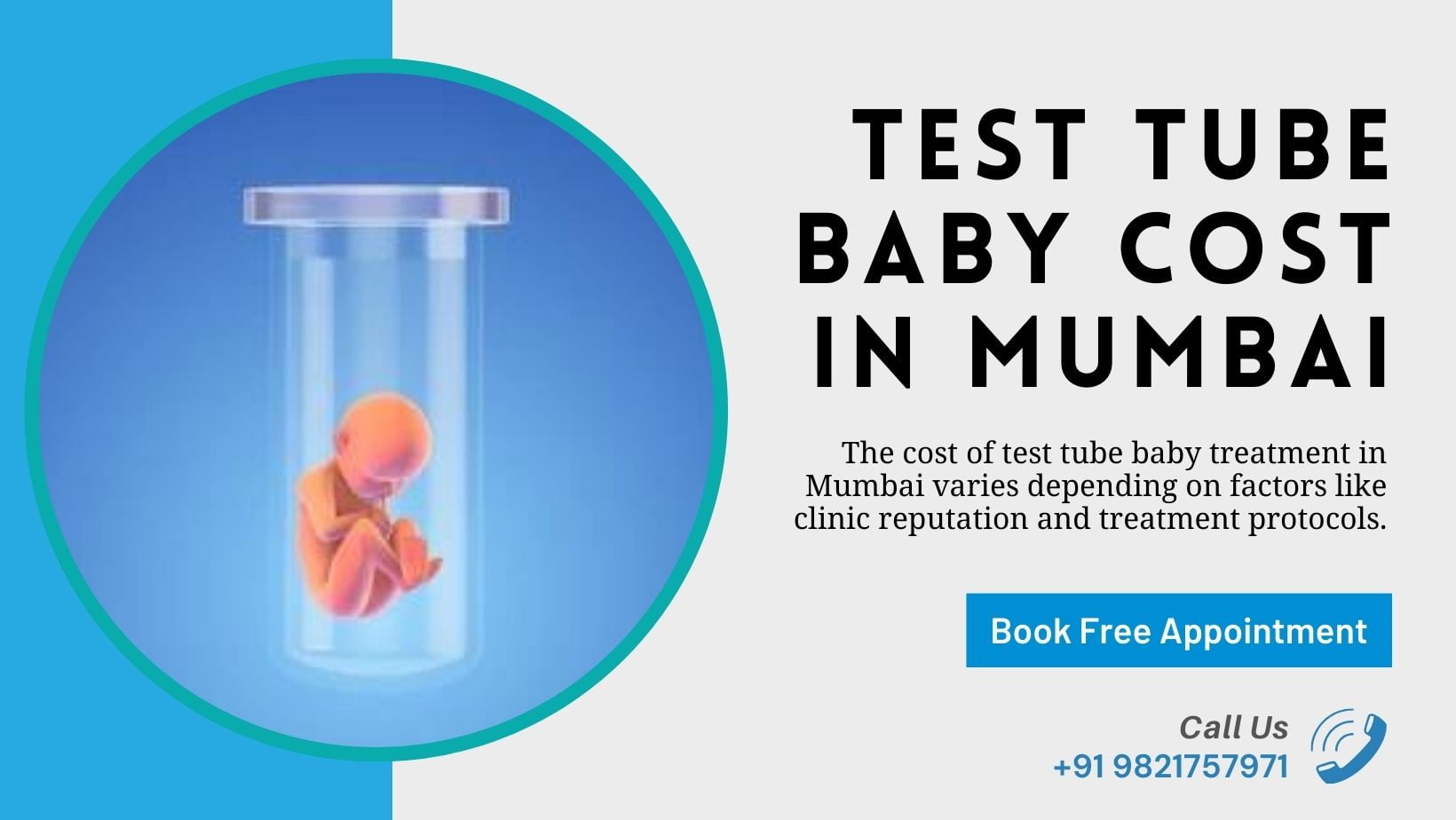Welcome to Baby Grow Fertility, your trusted destination for fertility solutions in Mumbai. As you embark on the journey towards parenthood, understanding the Test Tube Baby Cost in Mumbai is a significant step.
At Baby Grow Fertility, we offer a comprehensive range of services tailored to your unique needs, ensuring that you receive the care and support you deserve. Our team of experienced fertility specialists, state-of-the-art facilities, and personalized approach set us apart as a leader in the field.
From initial consultations to advanced reproductive technologies like Test Tube Baby, we are committed to guiding you every step of the way. With a focus on compassion, transparency, and excellence, Baby Grow Fertility strives to make your dream of building a family a reality. Explore the possibilities with us and take the first step towards a brighter future.
What is Test Tube Baby?
A test tube baby, scientifically known as in vitro fertilization (IVF), is a fertility treatment where eggs are retrieved from a woman’s ovaries and fertilized with sperm in a laboratory setting. This process occurs outside the woman’s body, hence the term test tube baby. After fertilization, the resulting embryos are cultured in a laboratory for a few days before one or more are transferred back into the woman’s uterus, with the hope of achieving a successful pregnancy. IVF is often recommended for couples experiencing infertility due to various factors, including fallopian tube blockages, male infertility issues, or unexplained infertility. It offers a promising option for couples seeking to conceive when natural conception is not possible.
Basic Procedure of Test Tube Baby
The basic procedure of test tube baby, also known as in vitro fertilization (IVF), involves several key steps:
- Ovulation Induction: The woman undergoes hormonal treatment to stimulate her ovaries to produce multiple eggs. This is crucial for increasing the chances of successful fertilization.
- Egg Retrieval: Once the eggs reach maturity, they are retrieved from the woman’s ovaries through a minor surgical procedure called follicular aspiration or egg retrieval. This procedure is usually performed under sedation or anesthesia to ensure the woman’s comfort.
- Sperm Collection: The male partner provides a sperm sample, which is then processed in the laboratory to isolate healthy and motile sperm.
- Fertilization: In the laboratory, the retrieved eggs are combined with the processed sperm in a culture dish. This can be done through traditional IVF, where the sperm naturally fertilizes the egg, or through intracytoplasmic sperm injection (ICSI), where a single sperm is directly injected into the egg to facilitate fertilization.
- Embryo Culture: The fertilized eggs, now called embryos, are cultured in a special incubator for several days under controlled conditions to allow them to develop and grow.
- Embryo Transfer: After a few days of culture, one or more healthy embryos are selected for transfer into the woman’s uterus. This procedure is usually performed using a thin catheter that is inserted through the cervix into the uterus. The number of embryos transferred depends on various factors, including the woman’s age and the quality of the embryos.
- Implantation and Pregnancy: If successful, the transferred embryo(s) implant(s) in the lining of the uterus, leading to pregnancy. A pregnancy test is typically conducted about two weeks after embryo transfer to confirm whether implantation has occurred.
- Monitoring and Support: Throughout the entire process, the couple receives support and monitoring from their fertility clinic, which may include regular check-ups, hormonal monitoring, and emotional support.
- Frozen Embryo Transfer (FET): Any excess embryos not transferred during the initial IVF cycle can be cryopreserved (frozen) for future use. These frozen embryos can be thawed and transferred in subsequent cycles, reducing the need for repeated ovarian stimulation and egg retrieval procedures.
Test Tube Baby Treatment Cost Affecting Factors
Clinic reputation and expertise: The reputation and expertise of the fertility clinic play a significant role in determining the Cost of test tube baby treatment in Mumbai. Established clinics with a history of successful outcomes and experienced fertility specialists tend to charge higher fees for their services. Patients may find themselves paying a premium for the assurance of quality care and higher success rates associated with reputable clinics.
Treatment protocol and customization: The complexity and individualized nature of each patient’s treatment protocol can greatly influence the overall cost of test tube baby treatment. Customized treatment plans tailored to the specific needs and medical history of the patient may involve additional procedures, monitoring, or specialized techniques, all of which can contribute to higher expenses compared to standardized treatment protocols.
Diagnostic tests and screenings: Before undergoing test tube baby treatment, patients typically undergo a series of diagnostic tests and screenings to assess their reproductive health and identify any underlying issues that may affect treatment outcomes. The cost of these tests can vary depending on the type and number of tests required, as well as the clinic’s pricing structure for diagnostic services.
Medications and hormonal supplements: Test tube baby treatment often involves the use of medications and hormonal supplements to stimulate egg production, regulate ovulation, and support embryo implantation. The cost of these medications can vary depending on the specific drugs prescribed, dosage requirements, and duration of treatment. Patients may need to budget for the recurring expense of medications throughout their treatment cycle.
Additional procedures (ICSI, PGS/PGD): In some cases, additional procedures such as Intracytoplasmic Sperm Injection (ICSI) or Preimplantation Genetic Screening/Diagnosis (PGS/PGD) may be recommended as part of the test tube baby treatment process to improve the chances of a successful pregnancy or reduce the risk of genetic abnormalities. These supplementary procedures typically involve extra fees, adding to the overall cost of treatment.
Number of cycles required: The number of treatment cycles required to achieve a successful pregnancy can significantly impact the total cost of test tube baby treatment. While some patients may achieve success after a single treatment cycle, others may require multiple cycles to achieve their desired outcome. Each additional cycle incurs additional expenses for clinic fees, medications, and procedures, contributing to the overall cost burden for patients.
Test Tube Baby Cost in Mumbai
Test Tube Baby Cost in Mumbai can vary depending on several factors. On average, consultation fees range from INR 1000 to INR 3000 per visit. Diagnostic tests and evaluations, including blood tests, ultrasounds, and genetic screenings, may cost between INR 5000 to INR 15000. Medications and hormonal injections, crucial for stimulating egg production and preparing the uterus, can add up to INR 20000 to INR 50000 per cycle. Laboratory procedures, such as egg retrieval, fertilization, and embryo transfer, typically range from INR 60000 to INR 150000 per cycle. Additional treatments or techniques, like intracytoplasmic sperm injection (ICSI) or preimplantation genetic testing (PGT), can incur additional costs, ranging from INR 25000 to INR 75000. Overall, the total cost for test tube baby treatment in Mumbai can range from INR 100000 to INR 300000 per cycle, depending on individual requirements and clinic pricing structures.
Breakdown of Test Tube Baby Cost Components
Consultation fees: Consultation fees encompass the initial appointments with fertility specialists, where patients discuss their medical history, undergo evaluations, and receive personalized treatment plans. These fees vary depending on the clinic’s reputation, the expertise of the medical team, and the duration of the consultation.
Diagnostic tests and evaluations: Diagnostic tests and evaluations involve a series of assessments to determine the underlying causes of infertility and to assess the patient’s suitability for test tube baby treatment. These tests may include blood tests, ultrasounds, genetic screenings, and other specialized examinations. The cost of these tests depends on their complexity and frequency, as well as any additional consultations required for result interpretation.
Medications and hormonal injections: Medications and hormonal injections are an essential part of test tube baby treatment, as they help stimulate egg production, regulate ovulation, and prepare the uterus for embryo implantation. The cost of these medications varies depending on the type, dosage, and duration of treatment required. Some clinics may offer discounted rates or medication packages to help reduce costs for patients.
Laboratory procedures: Laboratory procedures encompass all the processes involved in fertilizing eggs, culturing embryos, and performing genetic screenings or other specialized techniques. This includes the cost of laboratory equipment, supplies, and the expertise of embryologists and other laboratory staff. The complexity of the procedures and the technology used can influence the overall cost of these services.
Additional treatments or techniques: Additional treatments or techniques refer to optional procedures that may be recommended based on individual patient needs or preferences. This could include intracytoplasmic sperm injection (ICSI) to assist with fertilization, preimplantation genetic testing (PGT) to screen for genetic abnormalities, or other adjunctive therapies. The cost of these additional treatments varies depending on their complexity and the resources required to perform them. Patients should discuss the necessity and potential costs of these treatments with their healthcare provider before proceeding.
What is the Success Rates of Test Tube Baby?
The success rates of test tube baby (IVF) treatments can vary depending on various factors such as the age of the woman, the cause of infertility, the quality of the eggs and sperm, and the expertise of the medical team. On average, the success rates for IVF treatments worldwide range from 30% to 50% per cycle for women under 35 years old. However, success rates tend to decrease with advancing maternal age, with women over 40 experiencing lower success rates per cycle. It’s important to note that success rates can also be influenced by factors such as the clinic’s protocols, the use of additional techniques like ICSI or PGT, and individual patient factors. Patients should discuss their specific chances of success with their fertility specialist based on their unique circumstances.
Conclusion
In conclusion, understanding the cost factors associated with test tube baby treatment in Mumbai is essential for individuals or couples considering this fertility option. The breakdown of costs, including consultation fees, diagnostic tests, medications, laboratory procedures, and additional treatments, provides valuable insight into the financial aspects of the process. While the expenses may seem daunting, exploring financial assistance options, comparing clinic pricing models, and discussing payment plans can help manage the financial burden. Moreover, considering the success rates of IVF treatments alongside the costs can provide a more comprehensive perspective. Ultimately, with careful planning, informed decision-making, and support from healthcare providers, individuals can navigate the journey of test tube baby treatment in Mumbai with confidence and hope for a successful outcome.




